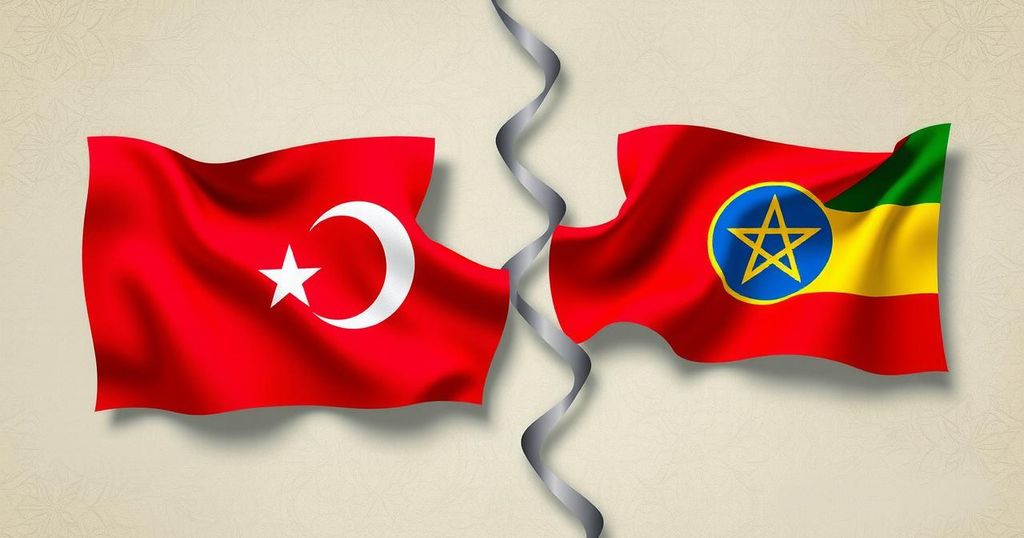Somali President Hassan Sheikh Mohamud and Ethiopian Prime Minister Abiy Ahmed reached a landmark agreement in Ankara, resolving a maritime crisis linked to Ethiopia’s MoU with Somaliland. The Ankara Declaration secures Somalia’s territorial integrity while allowing Ethiopia commercial access to the Somali coast, thus reflecting a diplomatic balancing act influenced by regional dynamics and international pressures.
On a recent visit to Ankara, Somali President Hassan Sheikh Mohamud and Ethiopian Prime Minister Abiy Ahmed engaged in discussions aimed at resolving a protracted sea port crisis that has strained relations between their nations. Despite previous attempts at mediation led by Turkey, no significant advancements had been achieved until their latest summit. The crux of the conflict involved Ethiopia’s memorandum of understanding (MoU) with the autonomous region of Somaliland, which Somalia condemned as an affront to its territorial integrity, prompting fears of potential military escalation.
Turkish President Recep Tayyip Erdogan, keen on fostering a resolution, pressured the leaders to finalize an agreement, with negotiations extending for nearly seven hours. Central to the discussions was Ethiopia’s formal recognition of Somalia’s territorial integrity, a point of contention that Prime Minister Abiy hesitated to endorse fully. However, after marathon negotiations, the two leaders finally inked the Ankara Declaration, which acknowledged Somalia’s territorial claims while providing Ethiopia with commercial access to the Somali coastline.
This agreement not only solidified Somalia’s position concerning its territorial rights but also delineated pathways for future bilateral discussions facilitated by Turkey, expected to commence by February 2025. Analysts view this accord as a strategic victory for both nations, suggesting that Somalia successfully leveraged the disagreement to enhance its standing in negotiations with regional powers, notably Turkey. Meanwhile, Abiy’s concessions appeared driven by pressures both from within Ethiopia and from international actors, notably the United States, concerned about stability in the Horn of Africa.
The recently completed accord underlines the ongoing complexity of regional politics, particularly with Somaliland’s evolving leadership dynamic and its implicit aspirations for greater international recognition.
Overall, this outcome seemingly provides a satisfactory resolution for both parties, with Somalia affirming its territorial sovereignty and Ethiopia ensuring access to key maritime routes essential for its economy while still reinforcing its role in regional stability and peacekeeping efforts.
The ongoing maritime dispute between Somalia and Ethiopia centers around Ethiopia’s need for port access due to its landlocked status. The issue escalated following a 2021 agreement between Ethiopia and Somaliland, which Somalia perceives as a threat to its territorial integrity. Ethiopia’s commitment to this agreement prompted intense negotiations facilitated by Turkey, which has vested interests in both nations. Turkey’s efforts are emblematic of its broader strategy to expand its influence in East Africa, primarily through humanitarian aid, military training, and infrastructure initiatives.
The Ankara Declaration represents a significant diplomatic achievement, balancing the need for maritime access by Ethiopia with Somalia’s demands for territorial recognition. With both leaders navigating complex geopolitical pressures, this agreement may herald a new chapter in Somalia-Ethiopia relations. Continued dialogue facilitated by Turkey is critical for ensuring the stability and security of the region.
Original Source: www.middleeasteye.net






